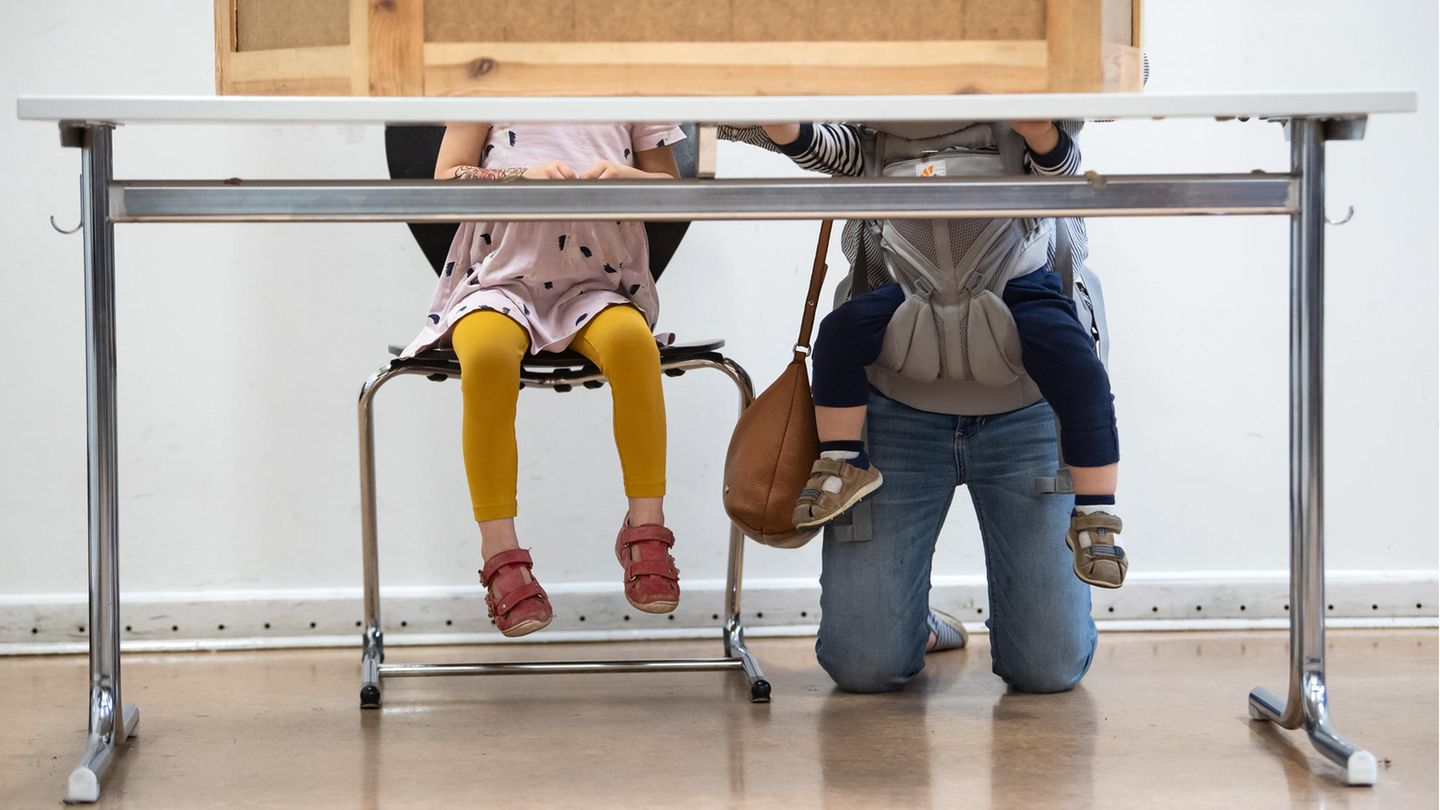In Berlin, around 2.7 million eligible voters are called on Sunday for the re-election of the House of Representatives. Franziska Giffey’s SPD currently governs in a coalition with the Greens and the Left. In the polls, however, the CDU has been clearly in the lead for a few weeks. SPD and Greens follow behind. In purely mathematical terms, a continuation of the red-green-red government would be possible after the election. A majority would also have tripartite alliances led by the CDU and possibly a black-red coalition.
CDU is ahead in polls
The Christian Democrats, with their top candidate Kai Wegner, clearly lead the polls with 25 to 26 percent. They could improve by seven to eight percentage points compared to the 2021 vote and would thus be the big election winner. It is followed by the SPD with 17 to 21 percent. The party of Governing Mayor Giffey could therefore deteriorate by up to four and a half percentage points. If the forecast stays the same, the Berlin Social Democrats would achieve their worst result ever. The surveys see the Greens of top candidate and environment senator Bettina Jarasch in third place with 17 to 18 percent. The party would also deteriorate – but only by up to two percentage points. The left around the incumbent Senator for Culture and top candidate Klaus Lederer is seen at eleven to twelve percent – two to three percentage points less than in 2021.
FDP so far smallest faction
In 2016, the AfD achieved a double-digit result from scratch, then fell to eight percent five years later and could now be almost double-digit again with a forecast ten percent. The party led by top candidate Kristin Brinker would be the only election winner alongside the CDU with a plus of two percentage points. The FDP around top candidate Sebastian Czaja is currently the smallest faction in the House of Representatives, but has to worry about being able to re-enter the state parliament. According to the polls, with five to six percent, it would only just clear the five percent hurdle. The Liberals would lose one to two percentage points. They could only hope for a government participation in the event that a so-called Germany coalition with the SPD and CDU comes about.
SPD avoids coalition agreement
The CDU excludes alliances with the left and the AfD, but otherwise Wegner avoided a clear coalition definition. Giffey did the same – she didn’t name a preference either. Greens top candidate Jarasch, on the other hand, has already spoken out in favor of a new version of the existing red-green-red government – albeit under her leadership. 78 of the 130 members of the House of Representatives are elected directly in the constituencies, 52 get into parliament via district or state lists. In 2021, the SPD won 25 constituencies directly, the Greens 24, the CDU 21. The AfD won two direct mandates.
Glitches in the 2021 election
On the original election day, September 26, 2021, there were numerous glitches. The Berlin Constitutional Court then declared the elections to the House of Representatives and the twelve district assemblies to be invalid in November last year, which is why both will now be repeated on Sunday. At the request of the regional returning officer, Stephan Bröchler, a delegation from the Council of Europe will be in the capital to observe the elections. The Organization for Security and Cooperation in Europe was also asked, but did not consider an observation necessary.
Source: Stern
I have been working in the news industry for over 6 years, first as a reporter and now as an editor. I have covered politics extensively, and my work has appeared in major newspapers and online news outlets around the world. In addition to my writing, I also contribute regularly to 24 Hours World.




